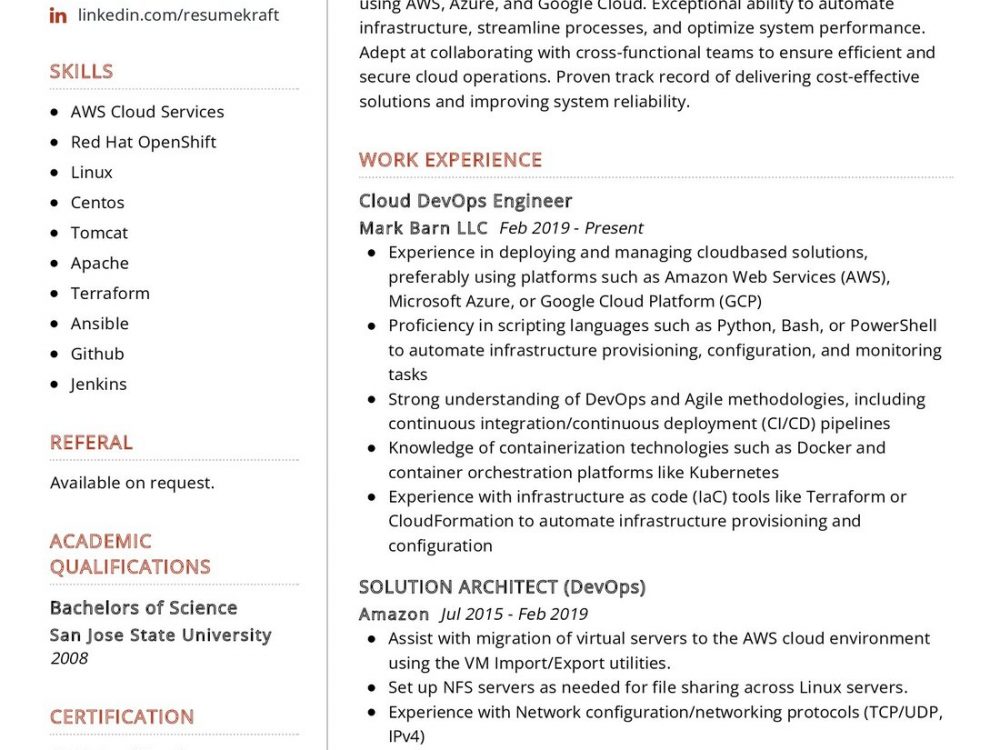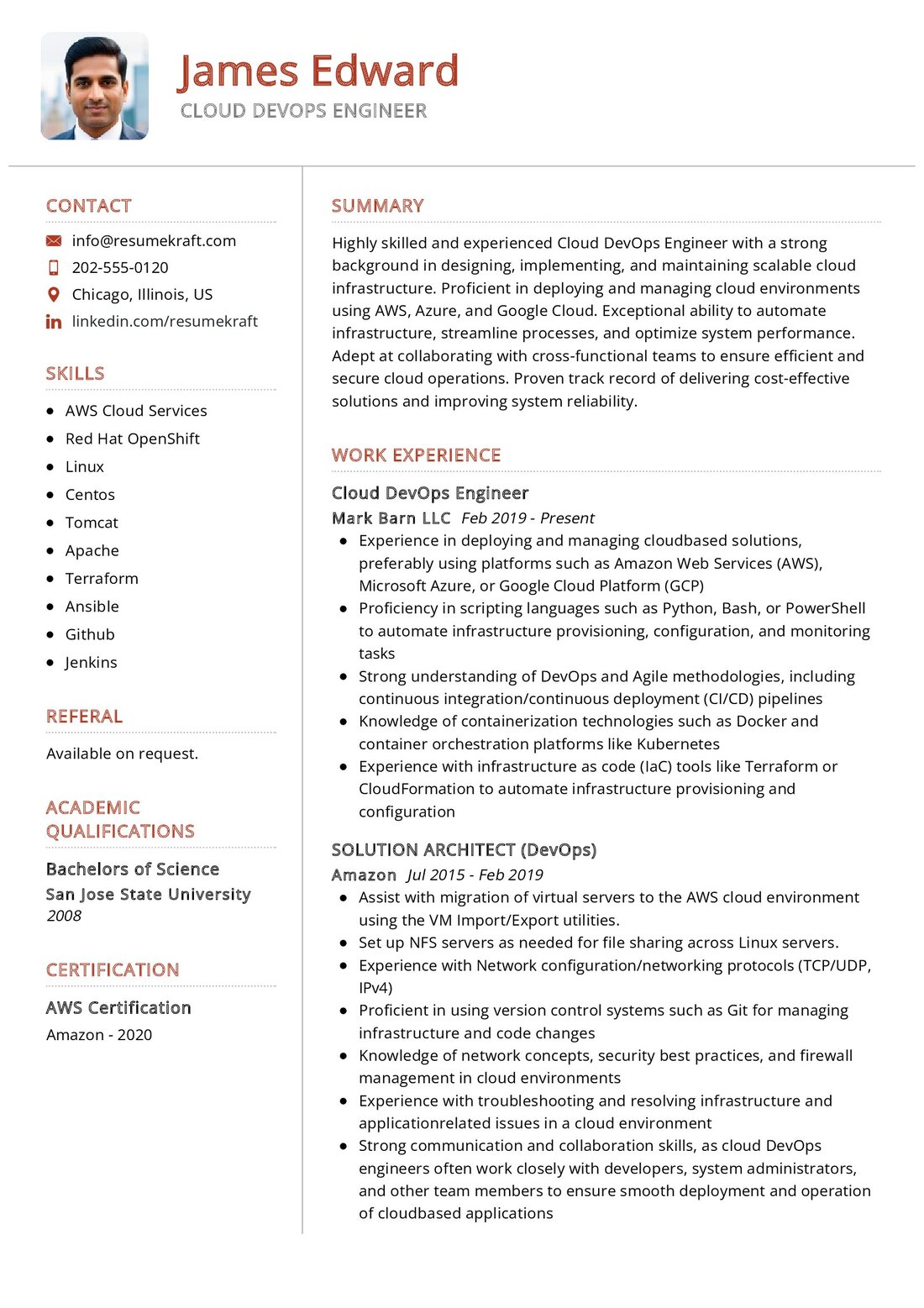What is the Role of a DevOps Engineer?
In today’s fast-paced and ever-evolving technological landscape, the role of a DevOps Engineer has become increasingly crucial for organizations striving for efficient software development and deployment. The DevOps Engineer is a key orchestrator, facilitating collaboration between development and operations teams, and streamlining the software delivery process. Let’s delve deeper into the multifaceted role of a DevOps Engineer, a position that demands a profound understanding of development and operations, coupled with a strategic mindset to optimize the software development lifecycle.
A DevOps Engineer is tasked with overseeing the software development process, from initial design to deployment and maintenance. They work closely with development teams to automate and streamline various aspects of the development lifecycle, ensuring seamless integration, testing, and deployment of software. Additionally, they collaborate with operations teams to ensure that the software runs efficiently and reliably in the production environment. Their role serves as a bridge between development and operations, fostering a culture of collaboration, efficiency, and continuous improvement.
What are the DevOps Engineer Job Requirements?
Becoming a successful DevOps Engineer requires a comprehensive skill set and a deep understanding of various technologies and processes. Let’s explore the key requirements necessary to excel in the role of a DevOps Engineer:
- A Bachelor’s or Master’s degree in Computer Science, Information Technology, or a related field, providing a strong foundation in software development and systems administration.
- Proficiency in coding and scripting languages, such as Python, Ruby, or Shell scripting, to automate tasks and processes.
- Expertise in using various DevOps tools, including Jenkins, Docker, Kubernetes, and Ansible, to streamline the development and deployment process.
- Experience with cloud services, such as AWS, Azure, or Google Cloud Platform, enabling seamless integration and deployment of applications in the cloud.
- Strong communication and collaboration skills to work effectively with cross-functional teams and stakeholders.
- Knowledge of security best practices and compliance requirements, ensuring the safety and integrity of the software and data.
Continuously updating your skills and obtaining relevant certifications can further enhance your profile in the competitive job market.
What are the Responsibilities of a DevOps Engineer?
The responsibilities of a DevOps Engineer are diverse and encompass various aspects of software development and deployment. Let’s outline the key responsibilities that define this critical role:
- Automating the software development process, including build, test, and deployment, to ensure a seamless and efficient workflow.
- Collaborating with development teams to optimize the development process, integrating continuous integration and continuous deployment (CI/CD) pipelines.
- Managing and monitoring infrastructure and applications to ensure high availability, performance, and security.
- Implementing and maintaining cloud-based architectures, leveraging the capabilities of various cloud service providers.
- Identifying and resolving technical issues and challenges, ensuring the smooth functioning of software and systems.
- Facilitating communication and collaboration between development, operations, and other cross-functional teams to ensure the successful delivery of software.
- Staying updated with the latest industry trends and best practices, implementing innovative solutions to improve the software development process.
Each responsibility contributes to the seamless and efficient development and deployment of software, fostering a culture of collaboration and innovation within the organization.
DevOps Engineer CV Writing Tips
As you craft your CV, it is essential to highlight your expertise and experiences in a way that resonates with potential employers. Here are some tips to help you create a compelling CV:
- Emphasize your experience with specific tools and technologies, showcasing your proficiency in various DevOps platforms and frameworks.
- Highlight successful projects or implementations where you played a pivotal role, demonstrating your impact on the organization’s software development process.
- Quantify your achievements wherever possible, using metrics and numbers to illustrate the results of your contributions.
- Customize your CV for each application, aligning your skills and experiences with the specific requirements of the job description.
- Showcase your ability to work in a collaborative environment, highlighting instances where you successfully collaborated with cross-functional teams.
Each tip serves as a guide to present your skills and experiences effectively, increasing your chances of securing your dream job as a DevOps Engineer.
DevOps Engineer CV Summary Examples
Your CV summary is the first glimpse that potential employers get of your skills and experiences. Craft a compelling summary that highlights your strengths and expertise as a DevOps Engineer. Here are some examples to inspire you:
- “DevOps Engineer with a comprehensive understanding of various DevOps tools and technologies, adept at streamlining the software development process and ensuring efficient deployment.”
- “Results-driven DevOps Engineer with a proven track record in implementing and managing CI/CD pipelines, ensuring the seamless integration and deployment of software solutions.”
- “Experienced DevOps Engineer proficient in cloud-based architectures and automation, dedicated to optimizing the software development lifecycle and enhancing operational efficiency.”
Each summary serves as a compelling introduction, showcasing your skills and experiences as a capable DevOps Engineer.
Create a Strong Experience Section for Your DevOps Engineer CV
Your experience section is a vital part of your CV, allowing you to elaborate on your achievements and contributions in previous roles. Use this space to highlight your significant projects and accomplishments. Here are some examples to guide you:
- “Implemented automated testing procedures that reduced testing time by 30% and increased overall software quality, resulting in improved customer satisfaction.”
- “Led the successful migration of applications to the cloud, resulting in a 25% reduction in operational costs and improved scalability and reliability.”
- “Developed and maintained a robust monitoring system that increased system uptime by 20%, ensuring smooth and efficient operations of critical applications.”
Each experience highlights your contributions and achievements, demonstrating your expertise in optimizing the software development and deployment process.
Sample Education Section for Your DevOps Engineer CV
Your educational background serves as a testament to your knowledge and expertise in the field of DevOps. Include your educational qualifications to showcase your commitment to learning and professional development. Here’s how you can present your education:
- Master of Science in Computer Science, XYZ University, a comprehensive program emphasizing software development and systems administration, 2017.
- Bachelor of Technology in Information Technology, ABC University, providing a strong foundation in programming and software development, 2014.
- DevOps Certification, XYZ Certification Institute, demonstrating your specialization in DevOps methodologies and best practices, 2018.
Each educational qualification represents a milestone in your journey as a skilled and knowledgeable DevOps Engineer.
DevOps Engineer Skills for Your CV
Your skill set is a reflection of your expertise and capabilities as a DevOps Engineer. Highlight your technical and soft skills to showcase your ability to streamline the software development and deployment process. Let’s outline the essential skills that a DevOps Engineer should possess:
Technical Skills:
- Proficiency in coding and scripting languages, including Python, Ruby, and Shell scripting, to automate tasks and processes effectively.
- Expertise in various DevOps tools such as Jenkins, Docker, Kubernetes, and Ansible, enabling efficient and streamlined software development and deployment.
- Knowledge of cloud services, including AWS, Azure, and Google Cloud Platform, facilitating seamless integration and deployment of applications in the cloud environment.
- Experience in implementing and managing CI/CD pipelines, ensuring continuous integration and deployment of software solutions.
- Understanding of security best practices and compliance requirements, ensuring the safety and integrity of software and data.
Soft Skills:
- Strong communication and collaboration skills, fostering effective teamwork and coordination with cross-functional teams and stakeholders.
- Analytical and problem-solving abilities, enabling the identification and resolution of technical issues and challenges in the software development process.
- Attention to detail, ensuring accuracy and precision in the development, testing, and deployment of software solutions.
- Adaptability and flexibility, allowing you to adapt to evolving technologies and dynamic work environments effectively.
- Leadership and teamwork, empowering you to lead and work within teams to achieve common goals and objectives.
Each skill serves as a tool in your arsenal, enabling you to optimize the software development and deployment process and contribute to the overall success of the organization.
Most Common Mistakes to Avoid When Writing a DevOps Engineer CV
When crafting your CV, it is crucial to avoid common mistakes that can hinder your chances of securing your desired role as a DevOps Engineer. Here are the most common pitfalls to avoid:
- Using generic language and buzzwords that fail to highlight your unique skills and experiences as a DevOps Engineer.
- Focusing solely on technical skills without emphasizing your ability to work in a collaborative and cross-functional environment.
- Omitting relevant certifications and training programs that showcase your commitment to professional development and learning.
- Overloading your CV with technical jargon, making it difficult for recruiters to understand your skills and experiences effectively.
- Neglecting to tailor your CV for each application, missing the opportunity to align your experiences with the specific requirements of the role.
Avoiding these common mistakes can help you craft a compelling CV that effectively highlights your skills and experiences as a qualified DevOps Engineer.
Key Takeaways for Your DevOps Engineer CV
As we come to the end of this comprehensive guide, it’s essential to remember key points to consider when creating your DevOps Engineer CV:
- Showcase your proficiency in various DevOps tools and technologies, emphasizing your ability to streamline the software development and deployment process.
- Highlight your contributions and achievements in previous roles, using metrics and numbers to quantify the impact of your work on the organization’s operations.
- Emphasize your ability to work in a collaborative environment, showcasing instances where you effectively collaborated with cross-functional teams.
- Include relevant certifications and training programs to demonstrate your commitment to professional development and continuous learning.
Finally, feel free to utilize resources like AI CV Builder, CV Design, CV Samples, CV Examples, CV Skills, CV Help, CV Synonyms, and Job Responsibilities to create a standout application and prepare for the DevOps Engineer job interview.
Armed with these insights and tips, you are now ready to craft a compelling CV that highlights your skills, experiences, and value as a DevOps Engineer. Best of luck!


